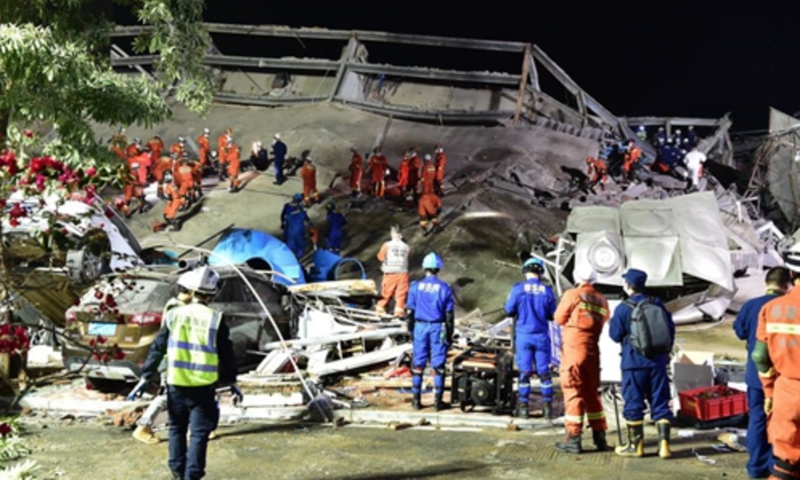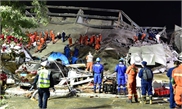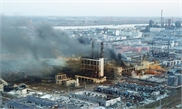
Accident site of a collapsed hotel in Quanzhou, East China's Fujian Province, March 8, 2020. Photo: Xinhua
The Central Commission for Discipline Inspection (CCDI) of the Communist Party of China (CPC) criticized some government bodies and individual officials for engaging in formalism, bureaucracy, malpractice and corruption while disclosing details of the investigation into the collapse of a hotel used as a COVID-19 quarantine center in East China's Fujian Province last year and the explosion at a chemical plant in East China's Jiangsu Province in 2019.
Investigation details revealed in a TV series broadcast by China Central Television (CCTV) since Thursday exposed the problems in relevant organs in the collapse of an illegally constructed building used as a COVID-19 quarantine center in Quanzhou, East China's Fujian Province on March 7, 2020, which caused 29 deaths, and the deadly explosion that struck a chemical plant in Xiangshui county, Jiangsu Province on March 21, 2019, which killed 78.
These problems show that official malpractice could inflict damages to people's lives, health and property safety, and corruption is the biggest source of pollution in the political ecosystem, the CCDI pointed out.
According to the CCDI, former official Liu Deli from the fire department of Quanzhou failed to fulfill his responsibilities, abandoned his supervision responsibility for his own personal interests and connived in the illegal reconstruction of the hotel.
Apart from Liu's malpractice, problems of formalism and bureaucracy also existed in the relevant parties, including the district and sub-district governments, the housing and urban-rural department, urban management, fire department and public security department during the eight years between the start of the illegal construction and the building collapse.
In the case of the deadly blast at the Jiangsu Tianjiayi Chemical Co plant in Xiangshui, the company illegally stored large quantities of dangerous nitration waste in warehouses for seven years in order to save on monthly processing fees of 1 million yuan ($154,700).
The authority found that the company had a bad track record, and had been repeatedly punished for violations before the tragedy. However, the supervision department conducted many fruitless inspections into the company, which displayed serious formalism and bureaucracy, an official from the CCDI noted.
Furthermore, some local government officials even colluded with the company, with 15 civil servants, who were sentenced to jail terms, found to be involved in corruption and bribery. The explosion caused direct economic losses of up to 1.98 billion yuan, 78 deaths, 76 seriously injured, 640 hospitalized and destroyed 22,046 houses.


